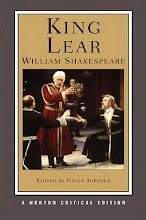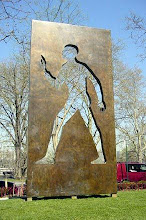By the way… One of the major themes of Galileo is not looking and therefore not seeing the truth.
In Scene 4, Galileo is desperately trying to convince his audience, which includes the prince, to look through his telescope to see the truth of the universe and the stars. Unfortunately for Galileo, no one looks through the telescope and therefore no one sees the truth.
“GALILEO: Are we, as scholars, concerned with where the truth might lead us?
PHILOSOPHER: Mr. Galilei, the truth might lead us anywhere!
GALILEO: I can only beg you to look through my eyeglass.” (68)
PHILOSOPHER: Mr. Galilei, the truth might lead us anywhere!
GALILEO: I can only beg you to look through my eyeglass.” (68)
The audience is apparently afraid of the truth, at least the scientific truth. The majority of the audience (‘cept for Galileo and Andrea) are very tightly wound in their religion and therefore believe that the only thing up in the stars is Heaven, and that the center of the universe is not the sun, but the Earth. Ridiculous.
In Scene 13, Galileo lives as a prisoner in his home, almost completely blind due to his extended research of the sun and the universe. Though I do not have any particular quotes from this scene I would briefly like to discuss the nature of the sight and blindness motif. Ultimately, Galileo became blind (but according to research I’ve done he did not actually become blind from his research, rather he became blind due to natural causes, but in terms of this blog, and the play… he became blind because he was silly enough to look through a telescope at the bright sun for most of his life.) and his blindness, which led his research to its demise, represents the bigger picture:
Blindness of the mental, leads to blindness of the physical.
Or something like that...



No comments:
Post a Comment